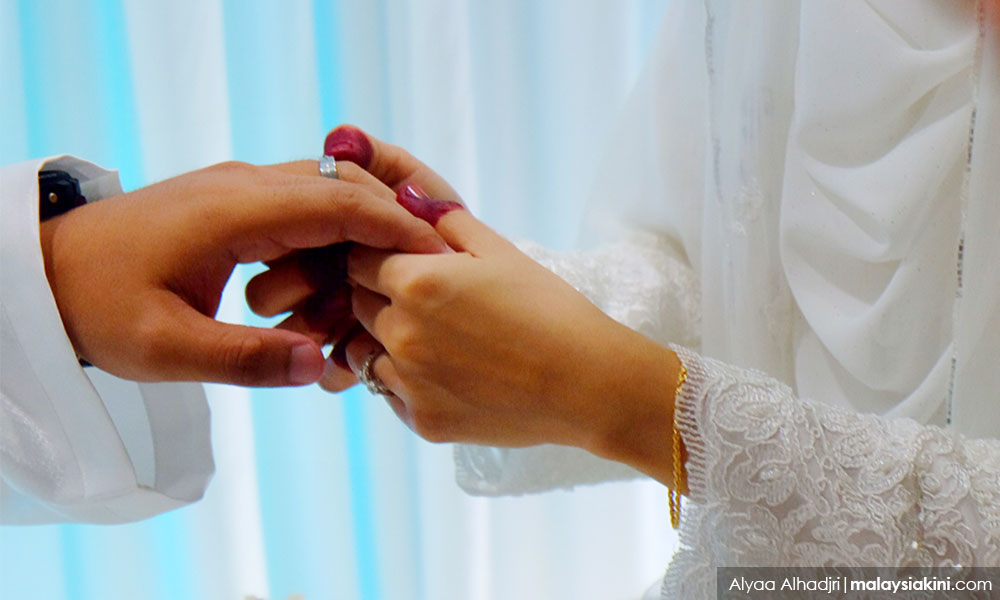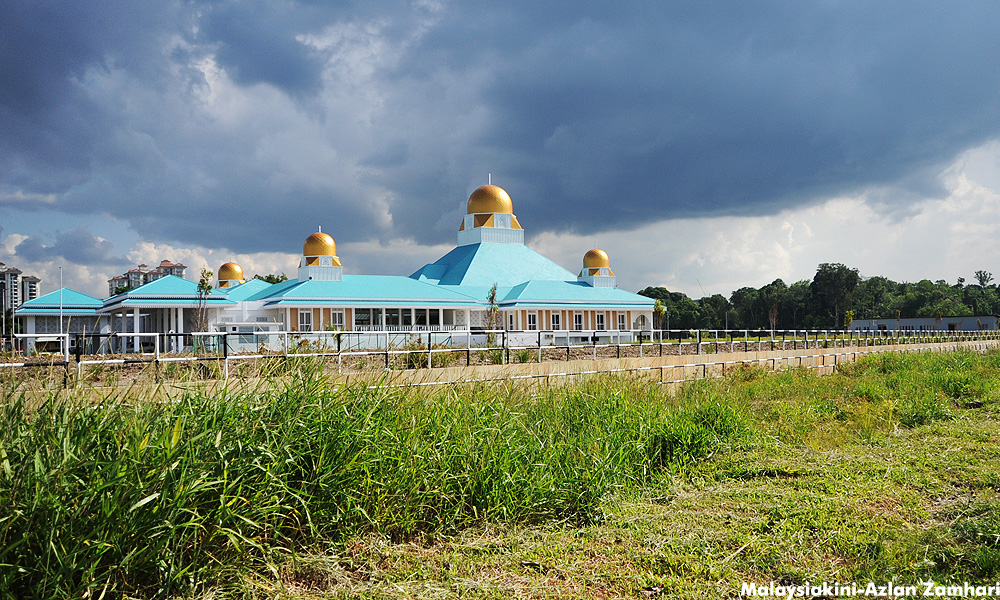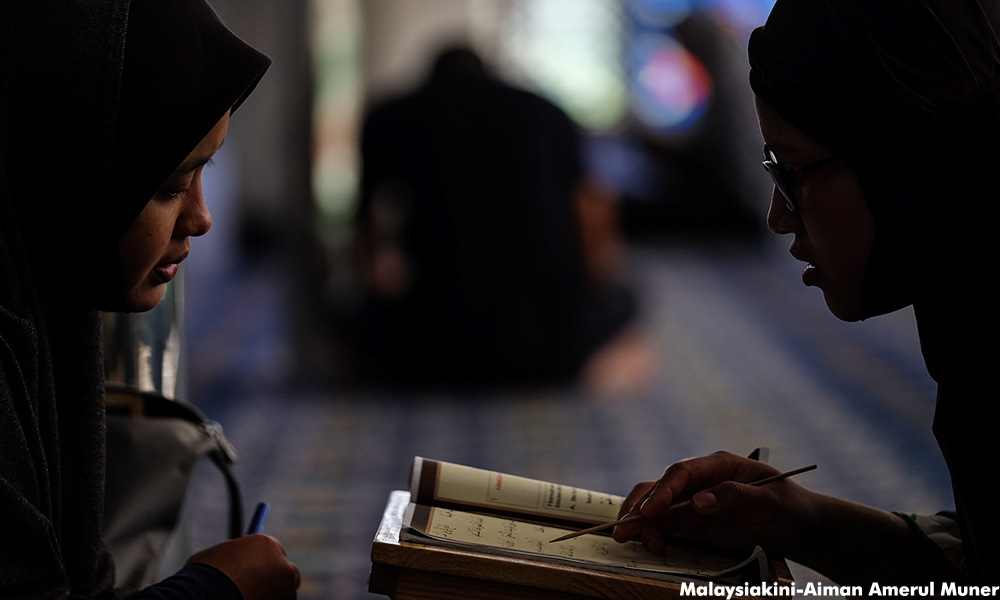
The Prophet’s marriage to Khadijah binti Khuwaylid is one of Islam’s most powerful and enduring love stories. While they met and married at a time where men would ravenously engage in unlimited polygamous marriages, the Prophet remained monogamous in his marriage to her till her passing 25 years later.
In his time, he would have been known as a radical, having used his observation of the community and common sense to also abandon other traditional practices that were considered social norms, such as female infanticide (the Prophet and Khadija had four daughters) and female circumcision.
The Prophet and Khadijah encouraged and supported each other through their business and personal endeavours. When the Prophet ran into her arms after his blessed first encounter with Jibrail, she wrapped her cloak around him, held his trembling body until he was comforted, and became the very first follower of this religion that he now bore.
Between them was a love that could not and didn’t want to be shared.
The Prophet only entered into polygamous unions after Khadijah’s passing in 619 CE. With the exception of Aisha bint Abu Bakr, all the women that the Prophet entered into polygamous marriages with were older than him.
These marriages not only allowed the Prophet to provide for the wives of his companions who had been widowed from wars, but also united warring tribes and brought a measure of peace to the land.

It has been recorded that the Prophet had deep and special affection for Khadijah. Years after her passing, he continued to speak fondly of Khadijah, much to the jealousy of his other wives. He mentioned her so often, that even Aisha said, “I never felt so jealous about any woman as I did for Khadijah” [Sahih al-Bukhari 5658, Sahih Muslim 2435].
Sura An-Nisa tells men that they may “marry from among women such as are lawful to you - two, three or four,” - this line is often quoted by those intending to enter into a polygamous marriage. Nevertheless, this line goes on to caution that, “if you have reason to fear that you might not be able to treat them with equal fairness, then marry only one” [4:3].
While there is permission for polygamy in Islam, it comes with conditions. The importance of fairness on the part of men is something that even the Quran has reservations about, as seen from verse 129 of the same Sura, which tells men: “It will not be within your power to treat your wives with equal fairness, however much you desire it” [4:129].
The verse suggests that while polygamy is tolerated, it is meant to be a very difficult exception, rather than the norm. What we need to be mindful of its history is that having seen the injustices committed on women and how families suffer as a result of polygamous relationships, Islam had reduced the number of wives that men could take on by limiting it to four, and sternly warned of its inescapable unfairness in the Quran.

While the Prophet’s polygamous marriages were special, for Muslims, there are three important conditions to polygamy in Islam. These conditions are:
- That the man possesses sufficient financial resources to provide for the expenses of all the families;
- That he is physically able to fulfil the needs of all his wives; and
- That the man is able to observe complete justice and equality towards all the families without any favouritism.
The above represents the safeguards placed by Allah as a form of mercy and compassion for women.
Putting this bluntly: failure to fulfil all of the above makes it Islamically not permissible for a man to take on subsequent wives.
Recognising the immense difficulty in upholding fairness in polygamous marriages and the extensive multi-faceted negative consequences the practice brings, many Muslim majority countries have prohibited polygamy, including Kyrgyzstan, Tajikistan, Tunisia, Turkey and Uzbekistan.
In Afghanistan, Algeria, Bahrain, Egypt, Jordan, Lebanon, Mauritania, Morocco and Palestine, a wife has the right to use polygamy as a reason for divorce, either through a stipulation in the marriage contract (ta’liq) or by petition to the court.
It is therefore unfortunate that while the law on polygamy in Malaysia in 1984 reflected the strict condition of fairness, it was amended in 1994 and 2006, resulting in a deviation from Islam’s spirit of compassion and fairness.
The law, which required a man wishing to enter into a polygamous marriage to prove that the subsequent marriage was just AND necessary, was loosened to just OR necessary, effectively making the criteria of fairness optional in the marriage.
In the years following these amendments, a study was conducted by Sisters in Islam, alongside researchers from UKM, USM and UM, to explore the impact of polygamy on Muslim families in Peninsular Malaysia.

The study found that 64 percent of first wives said their husbands had not complied with the ‘turn-taking’ agreements, 40 percent of husbands had reduced their monetary contributions to their children, wives and towards household expenditure, and 44 percent of first wives had had to start working longer hours to supplement the family’s income.
More disturbing, the study also found that 87 percent of the children surveyed said they had negative emotional and psychological issues. Sixty percent of them ended up being involved in problematic activities, such as drug use, truancy and alcohol consumption.
For this reason, law reform is critical, not only to uphold the elements of fairness and compassion as enjoined by the Quran, but also to bring order to the community and, most importantly, repair our family institutions.
The social, economic, emotional and psychological issues associated with polygamy are not new, and in fact, pre-date Islam. While Islam attempted to reduce and control its negative impact on society and women, it was never able to eliminate the problem altogether.
The answer was, and will always be, love. The gentle, but solid bonds of love, as shown by the Prophet and Khadijah. Among the great signs of Allah is the creation of mates, as well as the love, compassion and a deep sense of tranquillity that was put between them [30:21].
Interestingly, in a hadith by Al-Bukhari, the Prophet refused to give permission to his own son-in-law Ali bin Abi Talib to practice polygamy unless he divorced his daughter, Fatima. The Prophet was famously quoted to say that, “Fatima is a part of my body, and I hate what she hates to see. What hurts her, hurts me” [Sahih Al-Bukhari 4887].
The Prophet recognised and understood how hurtful polygamy would be for his own daughter, and that was about 1,500 years ago. Today, sadly, we are still seeing the emotional, social and economic havoc caused by polygamy on all those affected by it.
MAJIDAH HASHIM is a human rights defender. She can be contacted via Twitter at @majidahhashim. - Mkini



No comments:
Post a Comment
Note: Only a member of this blog may post a comment.